In ‘Nomadland,’ director Chloé Zhao (‘The Rider’) and cinematographer Joshua James Richards have achieved something remarkable, creating a film that is so visually stunning that each scene feels like poetry in motion and yet somehow maintains an ingrained sense of realism. It offers us a sincere look at a new but growing subculture in America, in which people in their 60s and 70s, basically a considerable portion of the victims of the 2008 financial crisis, are hitting the road in camper vans because they cannot afford traditional housing. These new-age nomads travel across the vastness of their seemingly boundless country, looking for temporary jobs.
The film’s protagonist, Fern (Frances McDormand), is an intimate observer and ardent participant in this lifestyle. While serving as the window for the audience into this mobile but tight-knit community, she finds a sense of belonging for the first time since her husband’s passing. ‘Nomadland’ is the cinematic adaptation of Jessica Bruder’s 2017 non-fiction book ‘Nomadland: Surviving America in the Twenty-First Century.’ Here is everything you need to know about its ending. SPOILERS AHEAD.
Nomadland Plot Synopsis
In 2011, the economy of the entire town of Empire, Nevada, is decimated after the main source of income for the townsfolk, a US Gypsum plant, closes its shutters for good. Fern, whose husband Bo has recently passed away, does several odd jobs to make ends meet. She previously worked at the plant along with Bo for most of her adult life but now doesn’t have much to show for it. Empire soon becomes deserted as almost all its residents leave in search of better opportunities. Fern also realizes that she can’t hold on to her home much longer. She sells some of her possessions and puts the rest into a warehouse before moving permanently into a van.
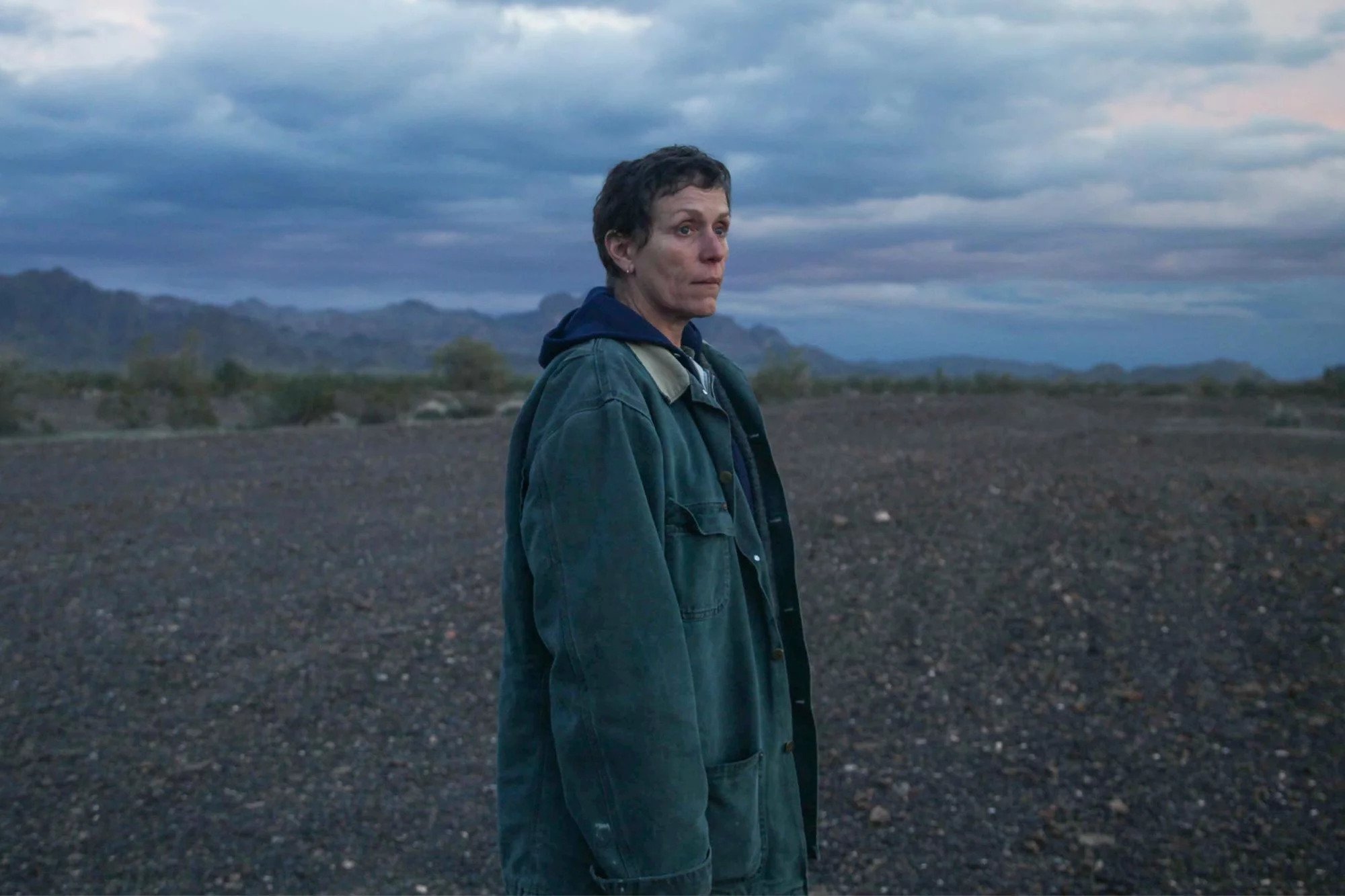
While working at an Amazon fulfillment center, she learns about nomadic living from her friend and colleague, Linda. Initially reluctant, Fern discovers that it might be the best option for her after the temporary employment at Amazon ends, and she fails to land any other job. Following Linda’s advice, Fern ends up in a desert gathering in Arizona, where she receives instructions on the basics of how to be a modern nomad from the veterans of the lifestyle, including Bob Wells, a real-life legend of the community.
As time passes, Fern almost seamlessly assimilates into the community. She finds that this nomadic life perfectly complements her restless personality. It also helps her deal with her grief. She carries that grief in her journey throughout the film. When she eventually returns to Empire and the home she and Bo shared, it signifies that she is finally ready to close that chapter of her life.
Nomadland Ending: Why Does Fern Return to Empire? Why Does She Later Leave the Town?
Fern is a deceptively complex character. She exudes genuine warmth and earnestness when she is with her fellow nomads. She demonstrates almost a childlike giddiness when she attends the RV show with her friends. On the other hand, when Swankie tells Fern that she (Swankie) has only a few months to live, Fern is sober, supportive, and kind.
However, her lifestyle makes these moments of human interactions rare by default. Most of the time, she is on the road, alone in nature with her van, which she names Vanguard. As a filmmaker, Zhao truly shines when she depicts these intense moments of loneliness of her protagonist. Fern seems to thrive in them, completely lost in the primal beauty that she encounters in her travel. There is a scene in the film in which Fern, completely nude, floats in a remote stream. With nothing to invade that absolute privacy, Fern allows herself to be static, even if it’s only for a limited time.
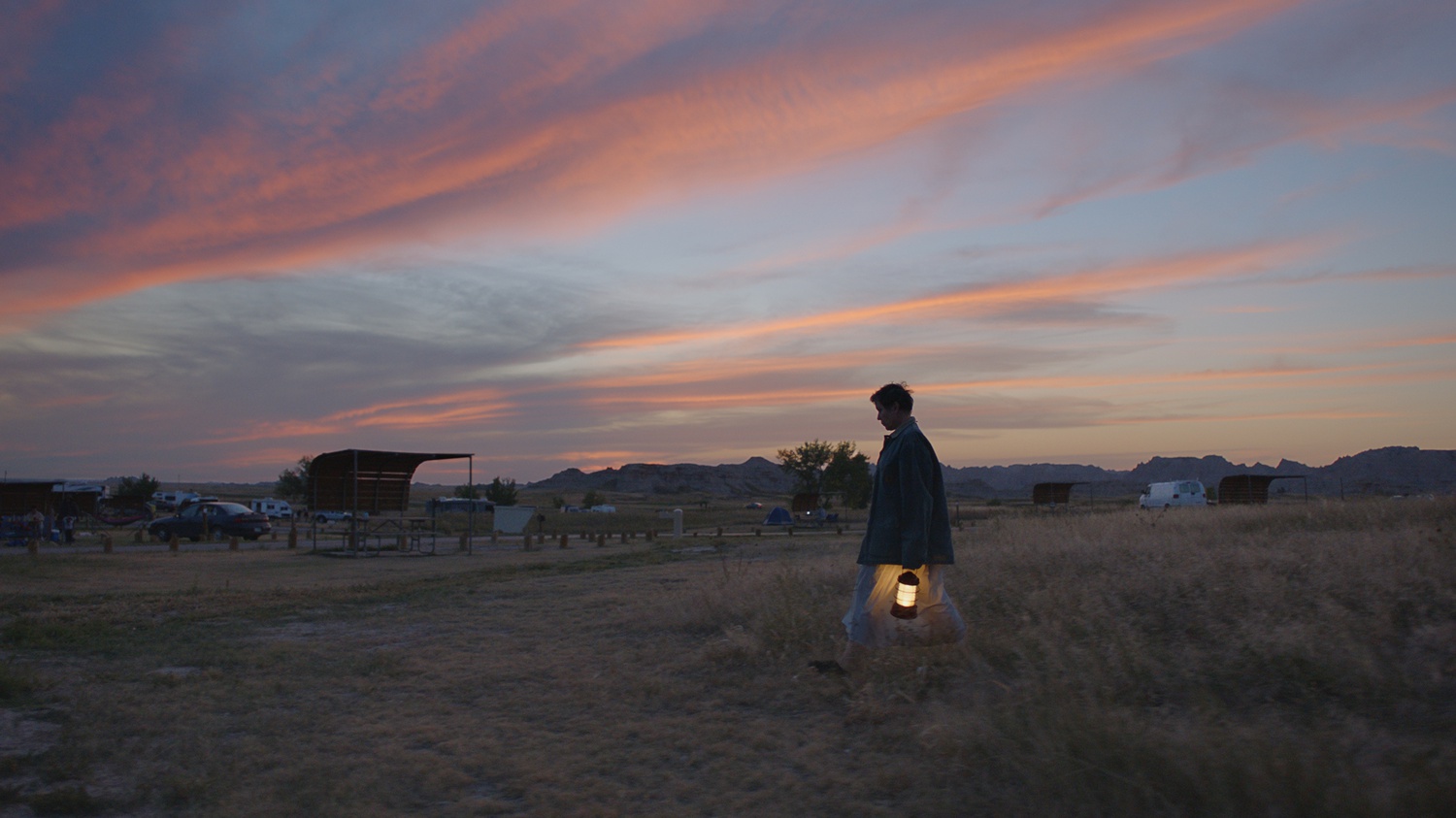
Fern’s growth in the film is quite subtle. She carries a deeply-rooted sense of loss wherever she goes. From Fern’s conversation with a boy she meets on the road, we learn that she and Bo married when they were hardly adults, and they remained together for several decades until Bo’s passing. In her marital life with Bo, she found reasons to overlook her inherent restlessness, even though most of them were originally Bo’s reasons to be in Empire. He loved working at the plant and loved living in that town, and Fern loved him. And that was enough.
When Bo died, that restlessness returned in full force, but she stayed in Empire because of the memories she made there with her husband. After her circumstances force her to embrace the nomadic lifestyle, Fern eventually grows to love it, even to the extent that she sabotages a potential future with David (David Strathairn) for it. She declines David’s offer to stay with him, willingly choosing the nomadic life over a domestic one for the first time, and returns to Empire.
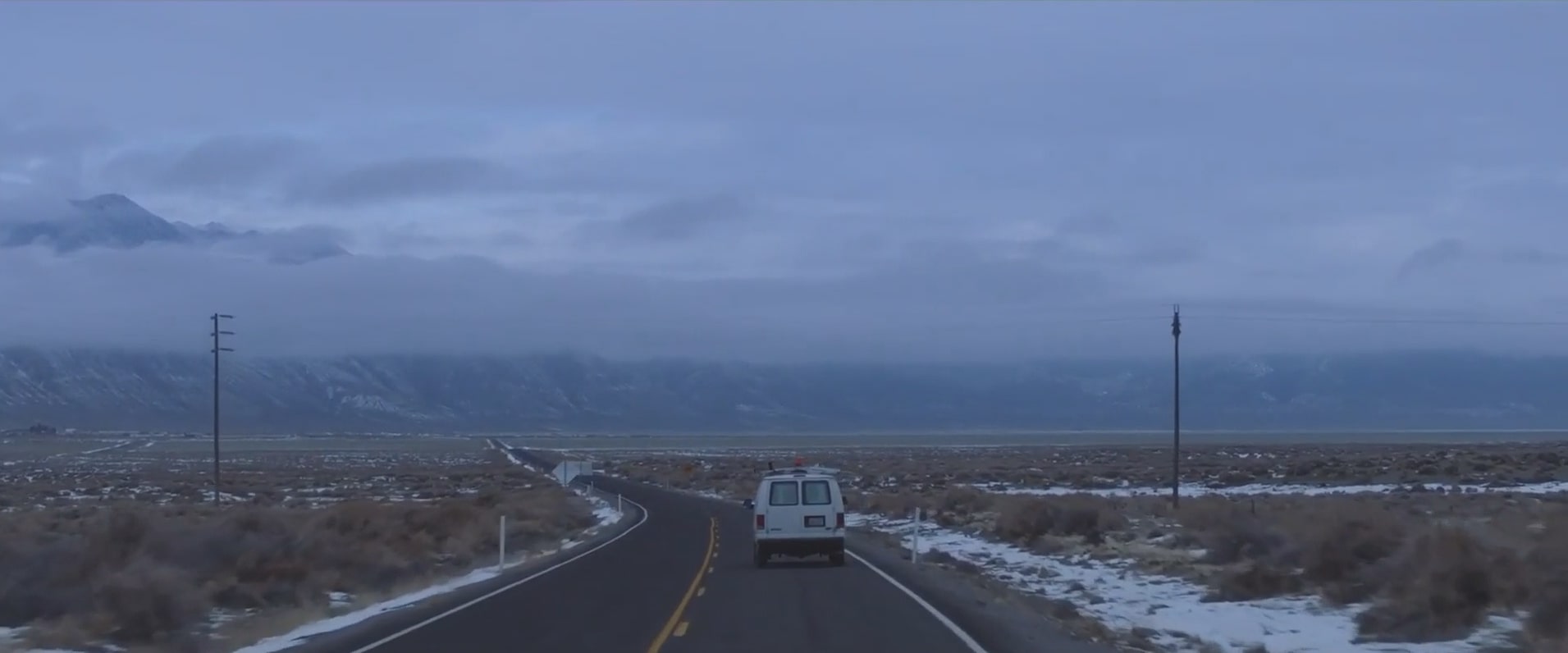
Her poignant conversation with Bob also precedes her return to her erstwhile home. They share their stories of loss with each other, giving one another glimpses of immense grief that they carry around with themselves. Bob lost his adult son to suicide a few years ago, and it has instilled in him a deep appreciation for nomadic life. The nomads don’t tell each other goodbyes, as there is a sense of finality attached to that word. Instead, they say that they will see the other person down the road. According to Bob, he will see his son again, even if it’s not in this life.
Fern goes back to Empire to say those same words to her husband. She sells the stuff she left in the warehouse and visits their home one last time. It’s her moment of catharsis. She is there not necessarily to find closure but to acknowledge her desire to live on. She leaves Empire because she has nothing that has a hold on her any longer. She and Bo never had a child, and Bo’s family was not involved in their lives. After promising her late husband that they will see each other again, she hits the road. She chooses not to live only with her memories and is now prepared to make new ones.
Zhao consciously avoids the pitfalls that could have turned the movie into an out-and-out social and political commentary by not overtly focusing on the reasons why Fern and her fellow nomads had become itinerant workers. Obviously, these issues are addressed, especially in the scene where Fern briefly argues with her brother-in-law and others about the housing market. But Zhao keeps it restrained, choosing to focus on the human side of Fern’s experience. When Fern declares that she is “houseless” but not “homeless,” it doesn’t serve as a statement against the global elites but an assertion of her current identity.
Why Does Fern Leave David’s Home?
During a conversation between Fern and her sister, it is revealed that Fern always had that restless spirit. While her sister accuses Fern of abandoning her, she seems to understand what drives Fern to such behavior and even accepts it. As mentioned above, Fern’s marriage with Bo grounded her, and she was truly happy when she was with him. After his death, she continues to live in their home until she has no other choice but to leave.
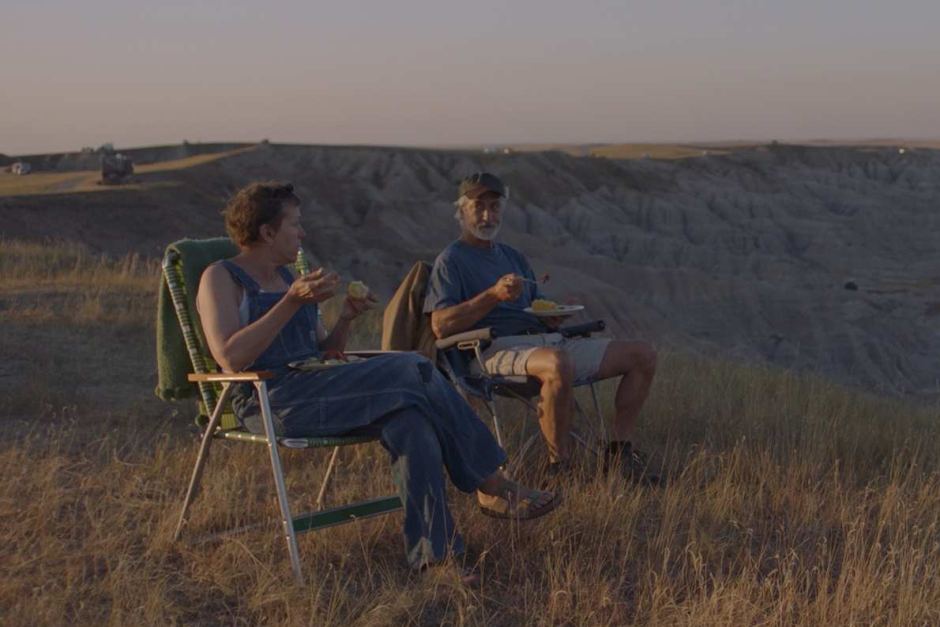
With David, it’s entirely different. Living with him and his family for a few days makes Fern realize how unsuited she has become to this life. She is not the same woman that she used to be when she was married to Bo. That woman was perfectly content in sacrificing her own desire for those of her husband. That woman was happy to leave everything behind for love. As Fern is now, she has experienced all of that to the very end. And while she cherishes the memories of her husband, she doesn’t want to repeat them. When Fern makes her silent departure, she just doesn’t pick the nomadic life, she also chooses herself.
Read More: Best Movies Like Nomadland

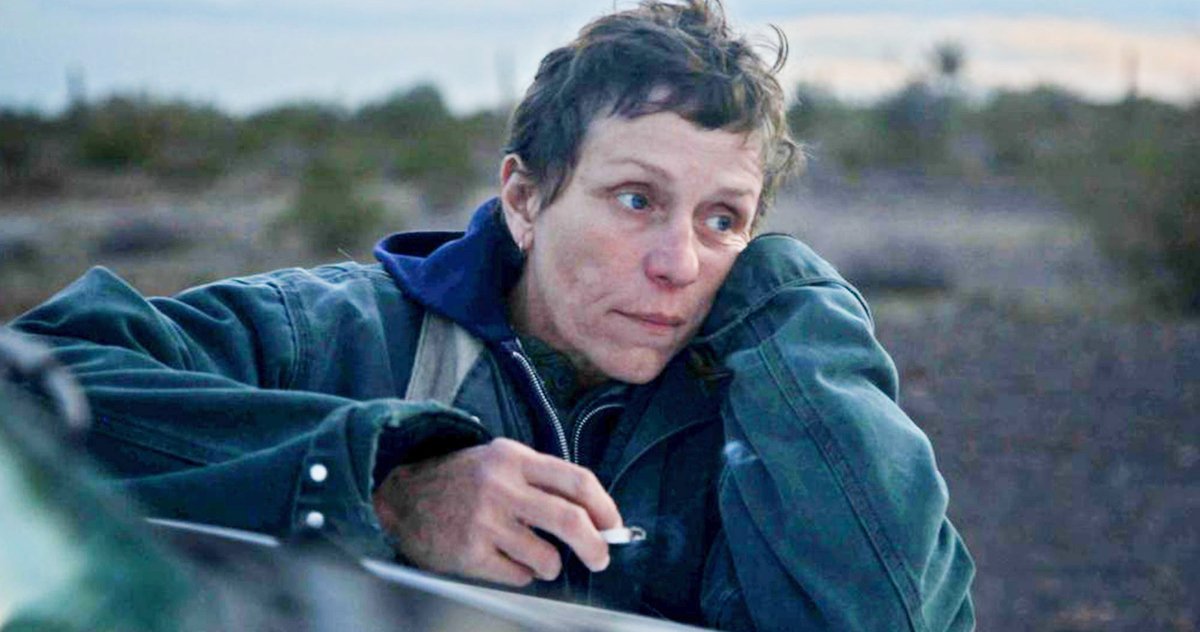
You must be logged in to post a comment.